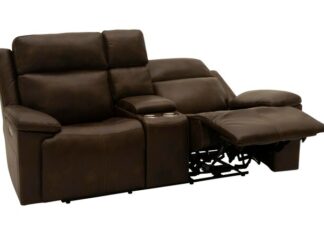Every cook wants his/her kitchen to be safe and sanitary. Food-borne illness has serious consequences. Nipping them in the bud is of paramount importance. However, there are so many cleaning solutions on the shelves, that cooks are justifiably confused. Which is best?
Do they all sanitize, or do they a few work to some degree and no further? Is natural or organic the better way to go? All these are good questions. If we deserve the best foods, then our food preparers deserve the best sanitizers. Let’s examine kitchen sanitation.
Why Sanitize the Kitchen?
Table of Contents
Isn’t cleaning the counters and food prep area good enough? Why do we need to sanitize our kitchens? The simple answer is bacteria. It gets into cracks, crevices, knife cuts, and more. From there, it gets into any food prepped in that area.
Cleaning counters and food prep areas only get some of the bacteria. Not many bacteria can escape cleaning chemicals, but some robust ones do. However, no bacterium ever got away from antibacterial wipes or bleach, which we’ll cover next.
What Should Cooks Use for Kitchen Sanitation?
There are only three products upon which cleaners and sanitizers are built: bleach, vinegar, and hydrogen peroxide. These must be used separately and not mixed. When they’re mixed, they create toxic gases which could cause irreparable damage to the cook.
Bleach
Bleach is made from chlorine, a naturally occurring element. Ordinarily a gas, chlorine is also an ingredient in table salt or sodium chloride and chlorine bleach. Mix chlorine with sodium hydroxide or a caustic type of soda, and you get chlorine bleach.
Using bleach as a sanitizer involves mixing one very light teaspoonful of bleach with one quart of water. Make sure the mixture is at room temperature, because any temperature hotter or colder will foster some bacteria.
Spray the bleach mixture on food preparation surfaces and let sit for one minute. This will kill e coli, salmonella, and listeria. Bacteria other than these are rarer and require more robust sanitation products.
Vinegar
Vinegar is made from grains distilled into alcohol such as vodka, wine, beer, and so on. A kind of bacteria is added to it to make acetic acid. As the liquid ferments, vinegar is made.
Vinegar doesn’t kill everything, but it does kill e coli and salmonella, two of the most common kitchen bacteria. As a cleaner, do not dilute white vinegar. Pour it straight on the counter or prep area at room temperature. Let it sit for ten minutes, and then wipe it off or rinse. Vinegar is also useful for getting hard water deposits off of utensils or appliances like kettles that often build up hard water mineral deposits over time.
Hydrogen Peroxide
When you mix a hydrogen atom with one of oxygen, then add water, you get hydrogen peroxide. Following its sanitation work, peroxide breaks down into everyday ordinary water.
Pour peroxide undiluted onto food preparation surfaces and counters. Let it sit for ten minutes before wiping or rinsing off. Peroxide kills e coli and salmonella bacteria.
Non-Toxic Soaps
The chemicals in ordinary soap, namely sodium lauryl sulfate, kill not only the bad bacteria but the good ones as well. This messes with the pH of the skin, leaving it susceptible to irritation in addition to some organ toxicity.
A Note on Sanitizing Utensils, Cups, Bottles, and Mason Jars
Sanitization doesn’t stop with your kitchen surfaces. Having clean utensils and dishware is also important. Especially for those of us who like to do canning, having a reliable way to sterilize mason jars can make a huge difference in the outcome of the attempt. Not every kitchen has a dishwasher, so countertop sanitization tools like food steamers can find a new use wen sanitizing certain kitchen items. It’s something to think about.
Natural or organic soaps rely on plant-based ingredients to kill bacteria and cleanse. They do the same job of ridding the body or the kitchen of bacteria, and they’re way better for you. For instance, Dr. Bronner’s Pure Castile Liquid or Bar Soap uses everyday olive oil processed into a soap that cleans any number of things from the kitchen to the laundry to the body and then some.
A sanitized kitchen and food prep areas are vital to the prevention of food-borne illness. Our families and restaurant patrons deserve the best we can give them. Cooking with food steamers helps to eliminate some bacteria while sanitizing counters and food prep areas eliminates others. The best sanitation agents are bleach, hydrogen peroxide, and white vinegar.










